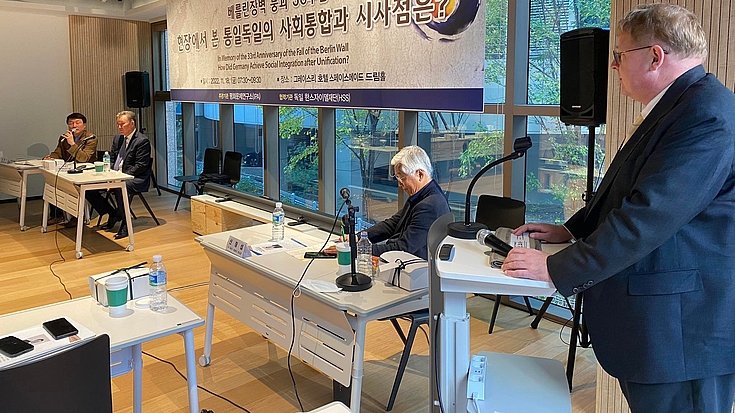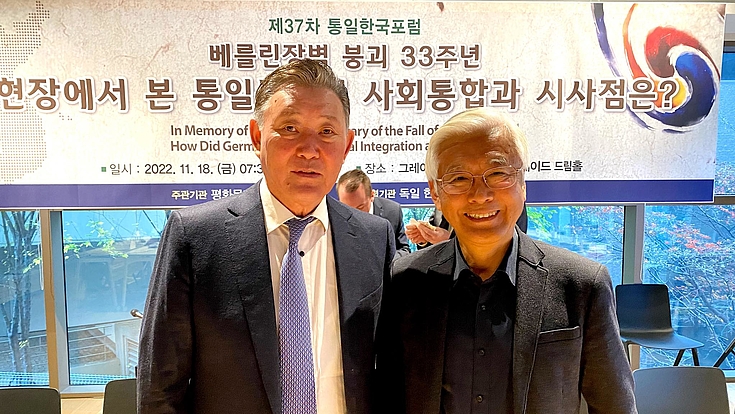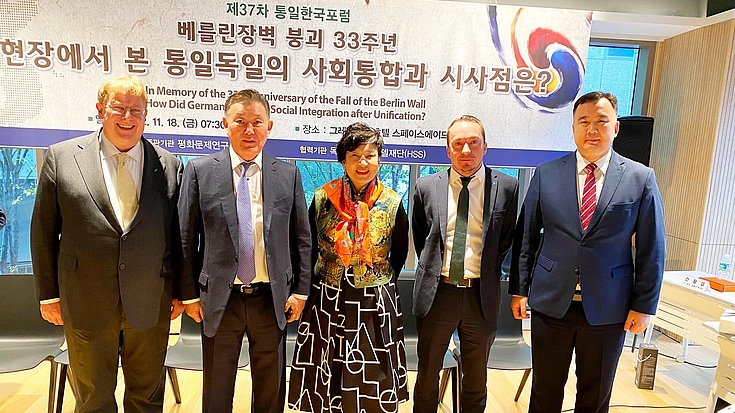Forum
37th Tongil Hankuk Forum

Currently, a social division is taking place on the topic of Korean reunification. Political ideologies are confronting each other and evolving rapidly and continuously. This dynamic is also clearly evident in the social and political debate surrounding reunification. Divided opinions and skepticism have dominated the debate for several generations. The 33rd anniversary of the fall of the Berlin Wall on November 9, 1989 provided an opportunity to discuss conflict management and social integration for a better social understanding of reunification and peace on the Korean Peninsula.
For this purpose, on November 18, 2022, the 37th Tongil Hankuk Forum of the Institute for Peace Affairs, a long-term partner of Hanns-Seidel-Foundation Korea, took place. Unification experts from various fields met for breakfast to discuss conflict management and social integration, and increase the social understanding of reunification and peace on the Korean peninsula. The meeting took place at the gracery hotel and was conducted in German with consecutive translations into Korean by Mr. Young-Soo Kim. The opening remarks were held by Jin Shin, Director of the Institute for Peace Affairs.

The forum had a particularly interesting speaker for the main session: Hon. Dendev Terbishdagva from Mongolia, was one of the movers of Mongolian transformation after 1989 and at the same time an intimate friend of Germany. Terbishdagva learned German in Leipzig and then worked at a meat processing kombinat (socialist firm) in Ulan-Bator. He returned to Germany to interpret for students, who studied in Berlin. There in 1989, he experienced the fall of the Wall and the miraculous peaceful transformation. For several years, he represented foreigners in one of the many small cities around Berlin, getting a first-hand experience with the difficulties and successes of transformation and integration. Also, he studied management and became a successful businessman. After his return to Mongolia, he was elected four times to Parliament, was Minister of Agriculture and Vice Prime Minister and also was Mongolia Ambassador to Germany.

According to Mr. Terbishdagva, it is important to distinguish between a regime and political system and the people. Only, if Koreans in the South can develop some basic understanding for the difficulties and life conditions in the North, there is hope for integration of both sides. Ultimately, however, Terbishdagva is sure that one-day Korean unification will come. The talk was moderated by Shin Chang-Seob, a former MBC journalist in Germany. Dr. Bernhard Seliger of Hanns-Seidel-Foundation Korea in his remarks pointed out that contrary to all expectations social integration rather than political or economic change had the longest, most persistent influence on post-unification Germany.
